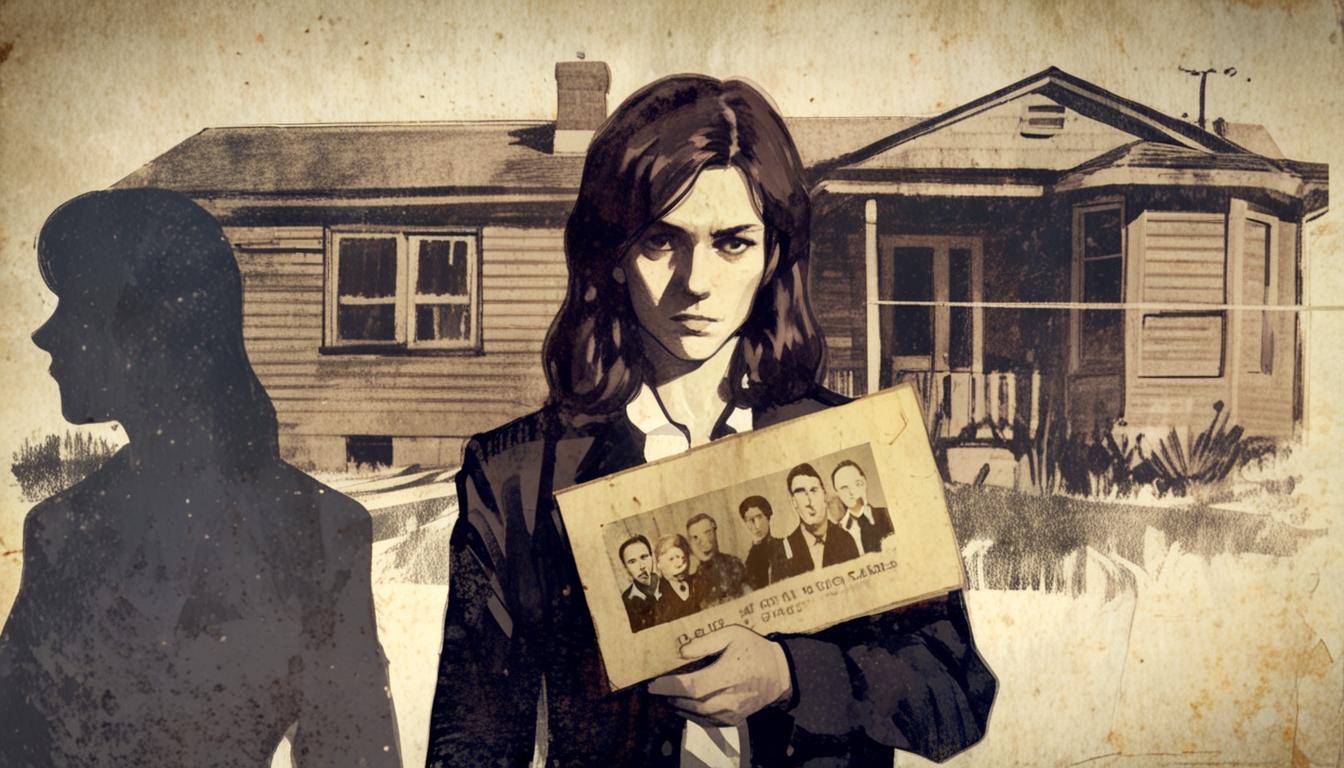Dez Chambers spent 15 long years clinging to the hope that her sister, Alison, might still be alive. Throughout this agonising wait, she often scanned documentaries on homelessness, searching for a familiar face and even turned to the Salvation Army’s family tracing service. It wasn’t until a fateful phone call from her mother-in-law in 1994 that the truth shattered her hope. “She said it was in the papers that the remains had been identified as Alison,” Dez recalls from her home in the Netherlands, reflecting the painful culmination of years filled with uncertainty.
At that time, Britain was gripped by a horrific narrative: the crimes of Fred and Rose West, two serial killers responsible for the abduction, torture, and murder of at least 12 young women over nearly three decades. Their gruesome story, which included the murder of their own children, occupied headlines and news cycles, the details deeply unsettling yet impossible to ignore.
Alison went missing in the late 1970s. After a troubled childhood marked by a difficult relationship with authority, she entered care only to run away, ultimately finding herself with a couple in Gloucester—a couple with the darkest of secrets. In a letter to her mother from the early 80s, Alison expressed gratitude, stating she had accepted her new caretakers as a second family. Tragically, that second family proved to be the Wests, whose horrifying legacy is at the heart of Netflix's new three-part documentary series, "Fred and Rose West: A British Horror Story."
The series seeks to provide a fresh perspective on a notorious case, using previously unseen police videos and unheard interviews with Fred West to explore not only the horrific acts the couple committed but also the lasting impact on the victims’ families. Dez Chambers has allowed her voice to be part of this narrative, intent on bringing Alison’s story to light. “I agreed to do this to bring Alison to life, but also for myself – for the closure,” she expresses, in a way that captures the sensitive balance of wanting to remember a loved one while confronting profound loss.
Director Dan Dewsbury emphasises this victim-first approach, seeking to weave empathy into the fabric of the documentary. “I really wanted to make sure that people understood this was a real thing that still affects these people today,” he explains. By focusing on the relatives’ experiences, Dewsbury aims to encourage viewers to contemplate the broader implications of the crimes rather than merely the sensationalistic aspects of true crime.
This renewed perspective diverges from many true crime narratives, which often lean heavily into mystery and macabre details. Dewsbury acknowledges the challenge of sticking to a formula that satisfies the established expectations of the genre while striving to introduce an element of authenticity. He notes that while the documentary does incorporate familiar stylistic tropes—like eerie soundscapes and grainy archive footage—the primary aim is to manifest the human stories behind the statistics.
Among the chilling visuals, viewers will encounter police footage from the Wests' home, the haunting home videos of the couple, and grim scenes of law enforcement excavating bodies buried in the garden, revealing the depths of the couple's depravity. “There was a bone in there last time,” Fred West is shown saying, his callousness palpable as he points to where his victims were concealed. Such footage offers a visceral reminder of the tragic circumstances surrounding the forgotten lives of the Wests’ victims.
The documentary also engages with the complex characters who were involved in the case, from media figures to law enforcement officers, highlighting the tragic inadequacies of the systems that allowed such heinous acts to continue unchecked. The West couple had been under the scrutiny of social services from the 1960s, numerous complaints failing to result in substantive action, ultimately culminating in one of the most infamous crime narratives in British history.
Moreover, Dewsbury highlights a significant missed opportunity in the case of Caroline Owens, one of the Wests’ nannies, who reported being abducted and abused yet saw the couple receive only a minor fine. “It was a missed opportunity to raise the profile of Fred and Rose and identify them as possible sex offenders,” comments detective constable Russ Williams in the documentary, underscoring the systemic failures that allowed the couple to evade justice for so long.
Despite the heaviness of the subject matter, Chambers intends to watch the documentary, feeling a personal obligation to support a narrative focusing on the victims. “It’ll be tough because there are things I likely didn’t know and things I might have forgotten,” she says, demonstrating the enduring complexities of grappling with her sister's tragic story. The release of "Fred and Rose West: A British Horror Story" on Netflix signals not only a revisiting of a horrific past but also a call for continued vigilance regarding societal protections for those most vulnerable.
This series aims to serve as a reminder of the lasting trauma inflicted by these crimes and the need for an empathetic understanding of the victims who are often overshadowed by the terror of their perpetrators. As the documentary prepares to air, it does so not merely as a retelling of horror but as an urgent exploration of loss, neglect, and the humanity behind every individual affected by these tragic events.
Reference Map
- Paragraphs 1, 2, 3, 4, 5, 6, 7, 8, 9, 10
- Paragraph 2, 5, 10
- Paragraphs 1, 5
- Paragraphs 2, 3
- Paragraph 1
- Paragraph 10
- Paragraph 10
Source: Noah Wire Services
